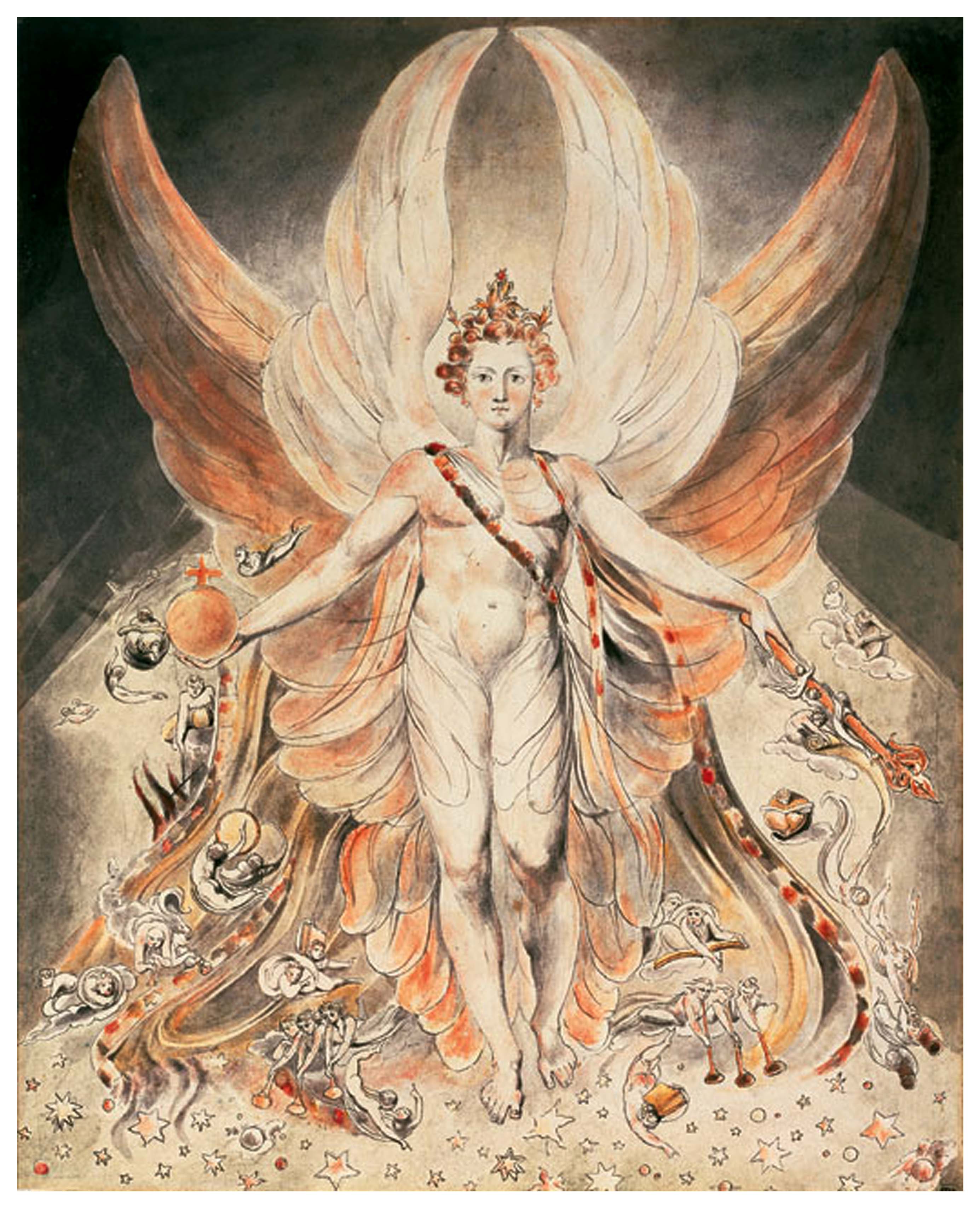I have found in my reading that most scholars feel (and I agree) that Satan is the best written character in Paradise Lost. Many literary figures, including William Blake, argue that Satan is the true hero of Paradise Lost. (Here is a link to several thoughts on the subject by Blake and others- http://www.cems.ox.ac.uk/citizenmilton/viii_heroism.shtml)
What made Milton able to portray a Satan that is so universal? Why do some feel he is the most accessible character in the poem? After reading about Milton's life, I think that it is because Milton was more sympathetic with Satan than with any other character.
Milton was fueled by ambition. He was determined to write the great English epic.He felt divinely appointed to be one of literature's greatest figures, and struggled with authority figures that tried to shape him differently. Magnify these characteristics-- the ambition, the eloquence, and the resistance to authority-- and we have Satan.
I'm not making the claim that Milton was a Satanist. He obviously was a Christian who intended to perpetuate Christ's teachings through this work and other poetry. But I think that there is an interesting relationship between Milton and his Satan, and that Milton likely saw in himself (and humanity as a whole) the characteristics that caused Satan's downfall. This made him able to so convincingly portray a figure who constitutes a massive part of our theology.
As the debate continues, maybe the truth is that Milton struggled just as much as the rest of us to define who the real tragic hero is in Paradise Lost.

I'm not too familiar with "Paradise Lost," but I have definitely heard about the connection that readers have with Satan in this retelling of Adam and Eve. I love different angles like that, but sympathizing with *Satan*?? Doesn't that kind of make you uncomfortable? I'm pretty amped to get to that part of this work to see what everyone is talking about, because it's always confounded me that readers, and Milton himself, have been able to relate on such a level with Satan that he becomes the most accessible character in the story.
ReplyDeleteI'm convinced that it is much easier to create a compelling depiction of evil than of good. It takes a lifetime to grow a tree, but only an instant to burn one. Beyond that, Milton was in the midst of the great apostasy, which means it would have been much harder to find accurate depictions of celestial persons to model righteous characters after.
ReplyDeleteI find your post very intriguing, and I think it probably was an extremely progressive take for Milton to have. Centuries later, Goethe wrote about an extremely compelling devil, one which I have always found much easier to relate to than many other protaganists. The idea (especially for one at odds with the Church) was probably very enticing.
ReplyDeleteI feel like we're not necessarily supposed to sympathize with Satan in the sense that we feel bad for him, but more in the sense that we understand how this could have happened to someone so high ranking in the courts of God. That is my thought, having read only a little about Paradise Lost and Milton. I think making Satan a central character (perhaps THE central character) of Paradise Lost is the same as what C. S. Lewis did with the Screwtape Letters--it gives us that odd perspective of Right viewed from the wrong side.
ReplyDeleteIn essence, Satan's vice was that of self-will, and in some sense, that's the same vice that keeps any man, woman, or devil out of heaven. C.S. Lewis is sometimes quoted as having said something along the lines of, "In the course of the eternities, there are but two types of people: those who say to God, 'Thy will be done' and those to whom God says, '/Thy/ will be done.'" I think it really comes down to that decision to follow God or to pave our own way, and Satan, perhaps, is the perfect tool to allow for an investigation of that idea.
ReplyDeleteThe portrayal of Satan is one of the main ways Milton's work is discussed. Glad to see it engaging other students right away.
ReplyDelete